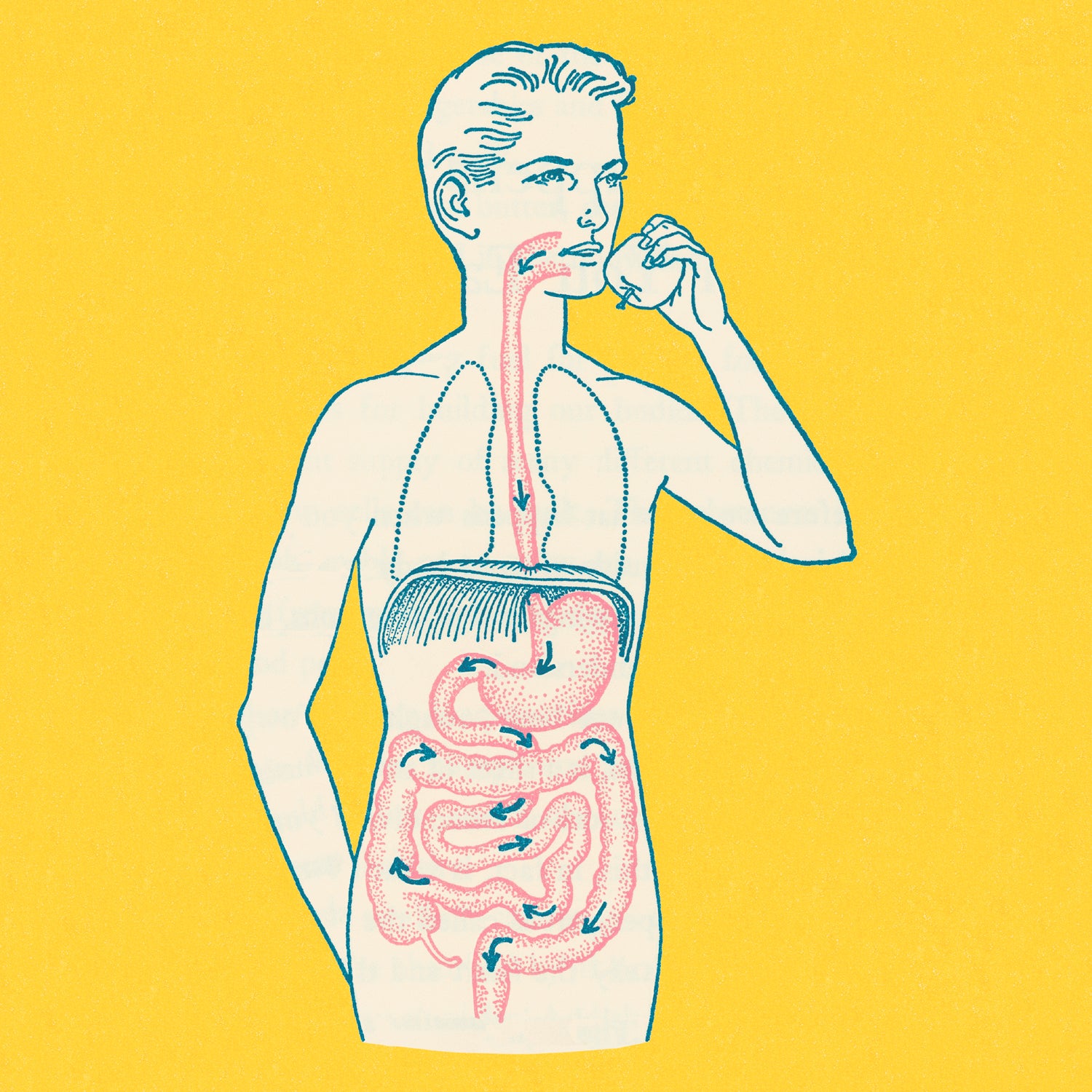Scientists are discovering that the microbes living in your digestive system may hold the secrets to improving performance, which is why scientists are investigating just whatÔÇÖs inside athletesÔÇÖ guts. Want to improve your own microbiotic health? HereÔÇÖs how.
So I Just Take Probiotics, Right?
Er, sort of. For more than a century, scientists have been looking for a probiotic-enhanced substanceÔÇösomething like yogurt, kefir, or kimchi that introduces new, live bacteria into your bodyÔÇöto cure what ails us. In the early 1900s, Russian immunologist ├ëlie Metchnikoff sang the praises of Lactobacillus bulgaricus, a bacteria that gives yogurt its taste, claiming that it could ward off senility. (It canÔÇÖt.) Today scientists know that probiotics can indeed solve a few problems. Got diarrhea or an upset stomach from a course of antibiotics? Eat some yogurt that contains live cultures (or some unpasteurized fermented pickles or sauerkraut) for a little relief. Promising clinical trials also suggest that one day soon, probiotics may be prescribed to treat irritable bowel syndrome or even depression.
Does Your Gut Hold the Secret to Performance?
 New science is set to revolutionize the way we eat, train, and live.
New science is set to revolutionize the way we eat, train, and live.But probiotics arenÔÇÖt a panaceaÔÇöand they canÔÇÖt prevent you from getting sick in the first place. ÔÇťThe industry is predicated on maintaining wellness,ÔÇŁ says , of the University of Chicago, ÔÇťbut currently thereÔÇÖs no evidence that long-term, continued consumption of probiotics maintains wellness.ÔÇŁ The main bacteria in probiotics, Lactobacillus and Bifidobacterium, do aid with GI issues and reduce diarrhea, but thereÔÇÖs mixed evidence of how effective they are in probiotic form.
The High Performance Secrets Inside Athletes' Guts
 In the name of citizen science, we peered inside the bellies of ║┌┴¤│ď╣¤═° staffÔÇöand seven elite athletes.
In the name of citizen science, we peered inside the bellies of ║┌┴¤│ď╣¤═° staffÔÇöand seven elite athletes.The science is still young, so for now researchers suggest supplementing probi┬şotics with prebiotics, which feed the bacteria already in your body. You can buy prebiotic powders, but the best way to get them is with high-fiber foods such as beans and veggies. Your gut bugs break down the fiber into helpful things like anti-inflammatory short-chain fatty acids. At the end of the day, scientists say, the best way to maintain a healthy gut is toÔÇöno surprise hereÔÇöeat a varied diet filled with veggies, legumes, and fermented foods to get both pre- and probiotics. (Take a look at ÔÇť3 Recipes to Boost Your MicrobiomeÔÇŁ┬áfor a few ideas.)
Should I Get My Biome Tested?
Roughly half a dozen companies will analyze your microbiome for you, identifying which bacteria dominate your gut and comparing your results with other peopleÔÇÖs. Some will also provide everything from tailored dietary advice to customized probiotic ┬şregimens. The largest company, ┬şuBiome, offers physician-ordered tests that it claims can iden┬ştify pathogens associated with some diseases. But a microbiome test alone, says Rob Knight, head of the , canÔÇÖt diagnose anything. Still, knowing if your gut is dominated by, say, bugs in the Firmicutes phylum rather than BacteroidetesÔÇöwhich are associated with a leaner body profileÔÇöcan help spur dietary changes. Maybe consider laying off the hamburgers and eating some plants instead. If you do want to use your results as a diagnostic tool, bring them to your doctor to rule out any egregious quantities of pathogenic bacteria.



 The ideal healthy-gut diet for performance.
The ideal healthy-gut diet for performance.